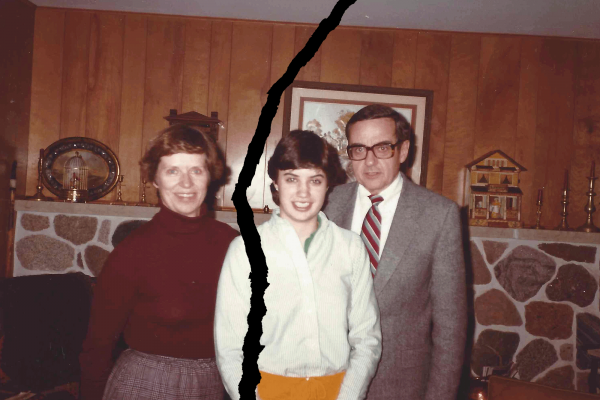“Oh Lord, not this again,” I thought. In the fall of 2015, I was sitting with my freshman peers on a worn-out, red upholstered seat in Moody Bible Institute’s Torrey-Gray auditorium. The president invited a Black preacher from the South Side of Chicago to the stage along with “Embrace,” the campus student group focused on creating a welcoming community for Black students. As they made their way to the stage, I gathered my belongings and prepared to leave. As soon as the pastor began to speak, I rose and turned up the aisle, only looking back once in a small act of self-righteous defiance. I hoped the speaker would catch my gaze and feel convicted over the heresy he preached. Pictures of Black Lives Matter protests scrolled across the screen, confirming in my mind that leaving was the right decision.
I came to Chicago as a bright-eyed and incredibly ignorant 18-year-old. To better understand the pressing issues of our society, I turned to clips from political commentators and conservative provocateurs Tomi Lahren, Ben Shapiro, and Matt Walsh on Facebook. They spoke passionately about a liberal movement hellbent on deceiving and dividing our nation, embedding Marxism into our democracy, and making everything about racism. The pinnacle of this not-so-hidden liberal agenda was the Black Lives Matter movement.
However, by 2016, my stack of “John” books — John Piper, John F. MacArthur, John Winthrop — that occupied my bookshelf were replaced by a new collection of “James” books — Willie James Jennings, James H. Cone, and James Baldwin. By 2017, I was writing essays on a “post-colonial” reading of Romans and challenging the whitewashing of Christianity in my undergraduate courses. By 2018, I was speaking on public panels about the necessity of the Black Lives Matter movement and MacArthur’s erroneous statements regarding “Social Justice and the Gospel.” Just a month before graduation in the spring of 2019, I sat in the front row of Torrey-Gray auditorium as Jennings presented an honorary lecture on the importance of land and place in theology. I did not make an early exit this time.
Much transpired between 2015 and 2019. Moments like the Charleston church shooting, the presidential election of Donald Trump, and the murder conviction of former Chicago police officer Jason Van Dyke are all landmarks in the evolution of my imagination regarding race. However, through and beyond these events, much of what changed my mind about the Black Lives Matter movement was a personal reckoning with my own ethnicity and experience of racism in the United States.
The first and foremost way my preconceived notions about Blackness and the Black Lives Matter movement were challenged was through my friendships with Black, brown, and international peers. These fellow students became conversation partners, colleagues, co-leaders, and coworkers. As we collectively navigated the issues of our community and society at large, we all learned valuable lessons and crafted a constructive, nuanced perspective informed by a diversity of experiences.
These relationships also helped me to think critically about both activism and education. When a faction of the student body organized to protest a Planned Parenthood clinic a block north of the Chicago campus, I remained behind and heard the stories of Black friends from the South Side who shared the history of unequal access to health care in Chicago. When a white professor aligned the church fathers with white evangelicalism during a history survey course, several international students explained to me why it was important to recognize Christian church fathers like Athanasius and Augustine as African theologians. When a professor used his class to spread Zionist propaganda, Palestinian classmates shared their experiences on the Middle East and the role of Israel in Christian theology. When missionary agencies set up booths on campus and framed long-term missions as an “unforgettable adventure trip,” students raised in the missionary field invited me to lament with them the commodification and racialized imagination of this sacred calling.
These relationships led me to the second reason I changed my mind about the Black Lives Matter movement. In dialogue with Black and brown peers, I was able to locate myself within the national conversation around race as an Indian American. Reconciling my studies with lived experience, I could articulate how anti-Asian racism was different from anti-Black racism and, in turn, could better understand how to love and serve my Black neighbors. This allowed me to see the fight for systemic justice and equality as more than a zero-sum game. I was no longer thinking about racial groups as competitors. I understood how we can unequivocally affirm that Black lives matter while also attending Stop AAPI Hate rallies. As the famed activist Fannie Lou Hamer once declared, “nobody’s free until everybody’s free.”
Finally, the third influence in changing my mind about the Black Lives Matter movement was the compelling and convincing narrative of liberation found in scripture and “non-white” theologies. The words of authors like Howard Thurman and James H. Cone began reverberating in my mind and soul, slowly softening my heart. Thurman’s description of Jesus as one with his “back against the wall” and Cone’s reckoning with the cross and the lynching tree quickly drew me into a theological frame that identified the colonial impulse of the Christian imagination and the redemptive possibilities of a Christ located on the borderlands. Said another way, these texts made clear the many ways that Christianity, a tradition that arose from the margins of society, has been weaponized as a tool of oppression against the marginalized. Whether it was Jesus and the Disinherited or The Cross and the Lynching Tree, these books relied on the scriptures to argue for the reality of a God who does not uphold systems of oppression but instead liberates, justifies, and redeems.
When I opened my Bible to places like Acts 2, the story of Pentecost proclaimed a uniting vision of God at work in the corners of our society. As I began to embrace my social location and experiences as a gift from God, I found the God of white hegemony and the theologies that support this ideology to be destructive. The greatest threat to our nation, I recognized, was not the Black Lives Matter movement, it was the blasphemy of Christian nationalism and white supremacy.
The implications and repercussions of these changes in my thinking were vast. And while I now supported a movement I was originally opposed to, I felt as though I had learned to view the world with a critical and constructive lens.
Located in a conservative, white evangelical institution, my evolution of thought was challenged at every turn. While I did not have to convince my peers that faith belonged in the public square (evangelicals have been putting their faith front and center in politics for centuries), there was deep conflict over the ends of this engagement. I was not interested in fortifying a Christian nation. I was concerned with building a society where all could experience overwhelming joy in a shared vision of love and belonging. I saw welcoming and protecting undocumented immigrants, advocating for the civil rights of the LGBTQ community, and learning from other faith traditions as tangible ways of living the gospel. What was not gospel to me was building walls, banning people from the United States based on their religion, and killing or incarcerating Black people.
As we approach midterms, hot-button issues like terrorism, immigration, and racial injustice will take center stage in the public discourse. Rather than relying on the platform of a political party to dictate a faithful approach to these topics, we must turn to the scriptures and people like Hamer, Thurman, and Cone. From this wellspring, we can see the ethical imperative before us: Protect and care for those who are pressed down by the systems of structures of our society.
To do this work effectively requires us to engage in the political arena. This is not a contradiction to our faith. I understand faith to be a gift to our democracy and a source of hope that has inspired some of the greatest social movements and civic institutions. From a shared faith, the critic, the prophet, and the builder work together to build a new future for our nation.
As midterms approach, we must discern which candidates will contribute to a vision of flourishing and belonging across the many different communities in our country. The goal, even in our many differences, is to unequivocally affirm the inherent worth, dignity, and capabilities of every human being no matter one’s political affiliation, cultural heritage, or religious beliefs. This affirmation is a main tenet of the Black Lives Matter movement. As activist Danté Stewart writes, “Black Lives Matter is not just a response to Black death but it is the public theological truth of the dignity of Black life … it is the story of all the ways we have loved and liberated ourselves and believed in our future.” The Black Lives Matter movement continues to offer a compelling vision of justice and invites us all to participate in achieving this end.
Got something to say about what you're reading? We value your feedback!







